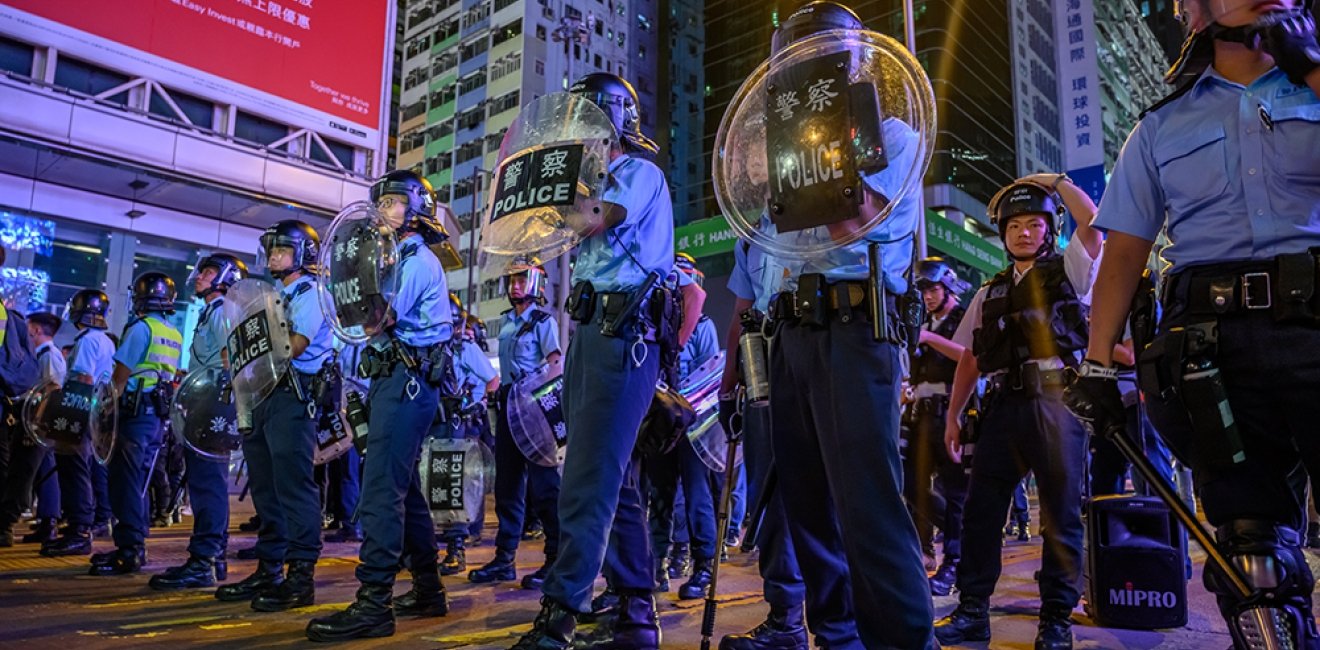
A blog of the Indo-Pacific Program
After two million Hong Kong residents, more than one-fourth of the city’s population, took to the streets to protest against a bill allowing extradition to China, Governor Carrie Lam apologized to the people of Hong Kong and suspended the legislative process of the bill. This massive demonstration on June 16th, largely peaceful, followed violent conflicts between protestors and the police on June 12th, which had blocked a second reading of the bill. Although intermittent protests are still occurring in Hong Kong, large-scale conflicts have been relatively settled. However, the dilemma that Hong Kong faces remain unsolved—in the backdrop of the U.S.-China trade war and China’s growing control over Hong Kong, the city is losing its status as a significant middle land connecting China and the world with free trade and a fair law system.
The dispute over the extradition bill started in February 2019, when the Hong Kong government proposed an amendment to its Fugitive Offenders Ordinance to allow the extradition of criminal suspects to more countries and territories, including mainland China. Hong Kong pro-democratic politicians and activists warned that this bill, if passed, would put the safety and interests of the residents and foreign citizens in Hong Kong at risk. The Chinese legal system, they argue, is nontransparent and has a long history of prosecuting dissents and activists. They highlighted that this amendment would significantly erode the semi-autonomic system of Hong Kong, or “one country, two systems” in Chinese terms, agreed to by China and the U.K. before the handover of Hong Kong in 1997.
...over one million people joined a demonstration opposing extradition to China on June 9th...
Sharing the concern of the pro-democratic camp, over one million people joined a demonstration opposing extradition to China on June 9th, but the Hong Kong government announced after the event that the second reading of the bill was scheduled three days later. On the proposed date, conflict turned violent as protestors surrounded the legislative building to obstruct the reading, and the police fired tear gas and rubber bullets to clear the site. Eleven young people who participated in the protests were arrested the day after. The scene of the conflict and arrests drove two million demonstrators to the streets on June 17th, leading to the suspension of the bill and the apology from Governor Lam.
Before the massive protests, the U.S. State Department had expressed concern over the extradition bill. After the outbreak of the conflicts, House Speaker Nancy Pelosi stated her support for the Hong Kong protestors, and Senator Marco Rubio, Representative Jim McGovern, and Chris Smith re-introduced the Hong Kong Human Rights and Democracy Act to Congress. Nevertheless, U.S. hands are tied in this matter—with the U.S.-China trade war ongoing, the United States lacks suitable bargaining chips, such as international cooperation, diplomat interaction, and trade policies, to impose pressure on China regarding Hong Kong issues.
However this tactic, if implemented, could do more harm to Hong Kong than to Beijing.
An option proposed in the draft of the Hong Kong Human Rights and Democracy Act is that if China refuses to preserve the promised autonomy of Hong Kong, the United States would consider revoking the privileges granted to Hong Kong as a separate territory from mainland China, including less tariffs and better visas policies. However this tactic, if implemented, could do more harm to Hong Kong than to Beijing.
More profoundly, the dilemmas of Hong Kong fit into the broader context of China’s increasingly authoritarian practices and the deteriorating U.S.-China relationship. China has kept strengthening its control over Hong Kong since the Umbrella Movement in 2014; as such, it makes less and less sense for the United States to treat Hong Kong differently from China. Meanwhile, as the Trump administration tries to “decouple” with China, the importance of Hong Kong being a reliable proxy to China is diminishing, and it would be unlikely for the United States to adopt significant measures to guarantee the freedom of Hong Kong. The suspension of the extradition bill is a temporary victory for Hong Kong pro-democratic protestors at the moment, but if the concerning trends in China politics and U.S.-China relations remain unchanged, the future of Hong Kong will still be at stake.
Image: PaulWong / Shutterstock.com
Follow the Asia Program on Twitter @AsiaProgram. or join us on Facebook.
The views expressed are the author's alone, and do not represent the views of the U.S. Government or the Wilson Center. Copyright 2019, Asia Program. All rights reserved.
Author

Indo-Pacific Program
The Indo-Pacific Program promotes policy debate and intellectual discussions on US interests in the Asia-Pacific as well as political, economic, security, and social issues relating to the world’s most populous and economically dynamic region. Read more





